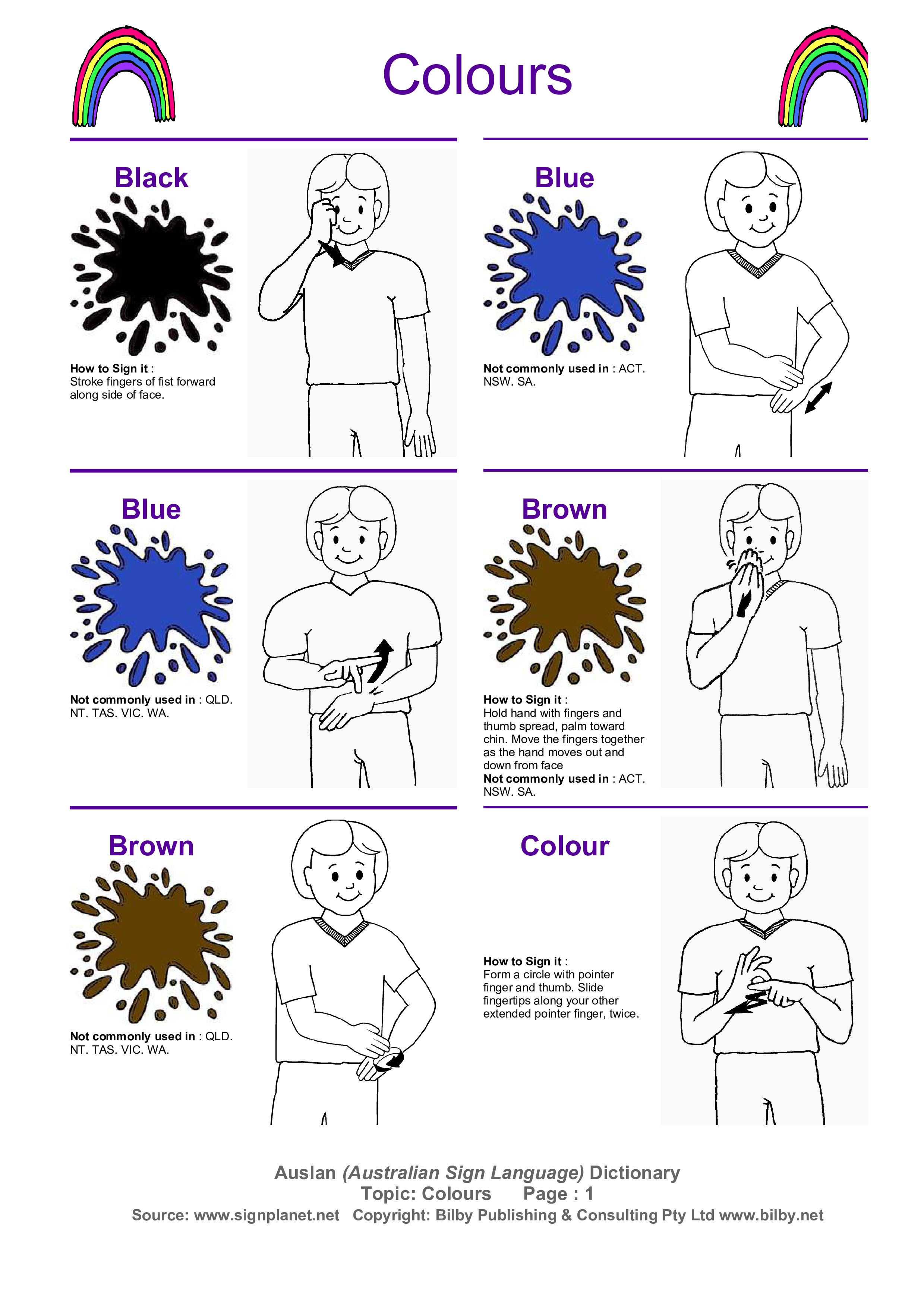Baby Sign Language Color Chart
Save, fill-In The Blanks, Print, Done!

Download Baby Sign Language Color Chart
Adobe Acrobat (.pdf)- This Document Has Been Certified by a Professional
- 100% customizable
- This is a digital download (675.04 kB)
- Language: English
- We recommend downloading this file onto your computer.
Teaching baby sign language using a sign chart can be a fun and effective way to communicate with your baby before they develop verbal skills. Here's a step-by-step guide on how to do it:
1. Choose Your Signs
Select a few essential signs to start with. Common choices include:
- Milk
- Eat
- More
- All done
- Sleep
- Bath
- Mommy
- Daddy
2. Create or Find a Sign Chart
A sign chart visually displays the signs you want to teach. You can create your own or find printable charts online. Ensure each sign is illustrated clearly and includes a simple description.
3. Introduce the Signs
Start with one or two signs. When performing the sign, say the word clearly and consistently. For example, when offering milk, sign "milk" and say the word out loud.
4. Use Consistency
Consistency is key in teaching baby sign language. Always use the sign every time you say the corresponding word.
5. Practice Regularly
Incorporate the signs into daily routines. For example:
- Mealtime: Use signs for "eat," "more," and "all done."
- Bedtime: Use signs for "sleep" and "bath."
- Playtime: Use signs for "mommy," "daddy," and "more."
6. Encourage Imitation
Encourage your baby to imitate the signs. Praise and encourage them when they try to sign back.
7. Use Repetition
Repetition helps reinforce the signs. Repeat the signs often and in various contexts to help your baby learn.
8. Expand Vocabulary
Once your baby is comfortable with a few signs, gradually introduce more. Use the sign chart to keep track of new signs and ensure consistent use.
9. Be Patient
Every baby learns at their own pace. Be patient and continue using signs regularly. Celebrate progress, no matter how small.
Example Sign Chart for Baby Sign Language
A simple chart might look like this:
| Sign | Illustration | Description |
|---|---|---|
| Milk | 🍼 | Open and close your fist |
| Eat | 🍽️ | Tap your fingers to your mouth |
| More | ➕ | Tap fingertips together |
| All Done | ✋🛑 | Rotate hands outward |
| Sleep | 😴 | Hand to cheek, head tilt |
| Bath | 🛁 | Mimic scrubbing motion |
| Mommy | 👩🍼 | Tap thumb to chin |
| Daddy | 👨🍼 | Tap thumb to forehead |
Using these steps and a sign chart, you can effectively teach your baby to communicate their needs and feelings through sign language.
DISCLAIMER
Nothing on this site shall be considered legal advice and no attorney-client relationship is established.
Leave a Reply. If you have any questions or remarks, feel free to post them below.
Related templates
Latest templates
Latest topics
- GDPR Compliance Templates
What do you need to become GDPR compliant? Are you looking for useful GDPR document templates to make you compliant? All these compliance documents will be available to download instantly... - Google Docs Templates
How to create documents in Google Docs? We provide Google Docs compatible template and these are the reasons why it's useful to work with Google Docs... - IT Security Standards Kit
What are IT Security Standards? Check out our collection of this newly updated IT Security Kit Standard templates, including policies, controls, processes, checklists, procedures and other documents. - Letter Format
How to format a letter? Here is a brief overview of common letter formats and templates in USA and UK and get inspirited immediately! - Google Sheets Templates
How to work with Google Sheets templates? Where to download useful Google Sheets templates? Check out our samples here.
cheese

